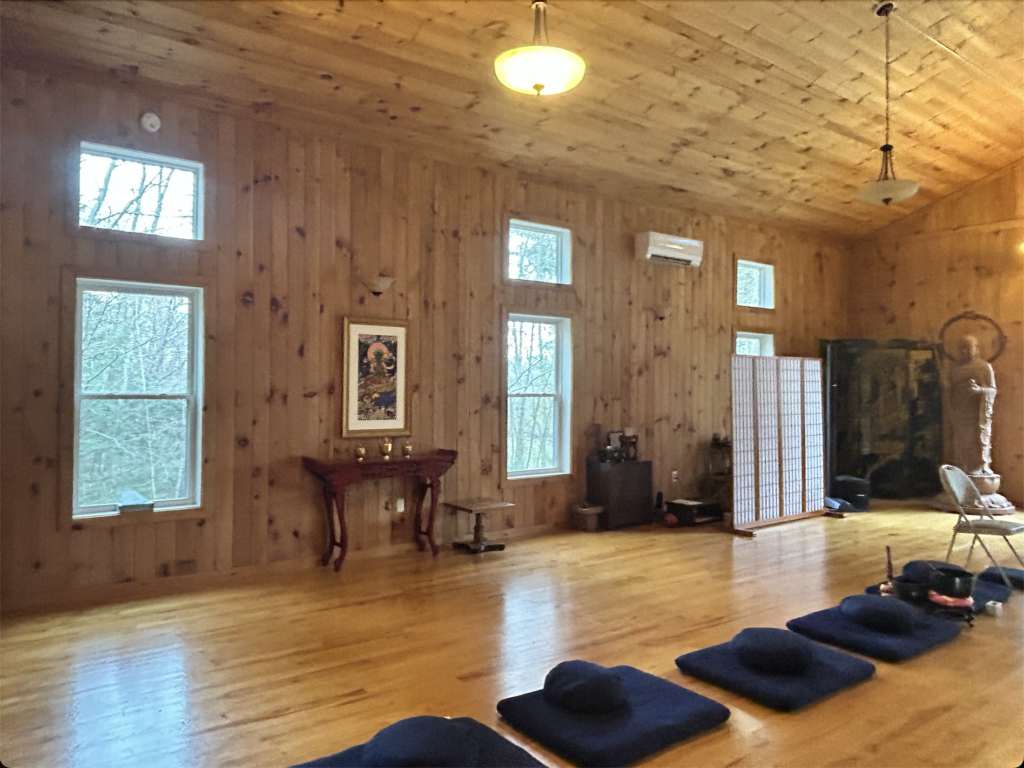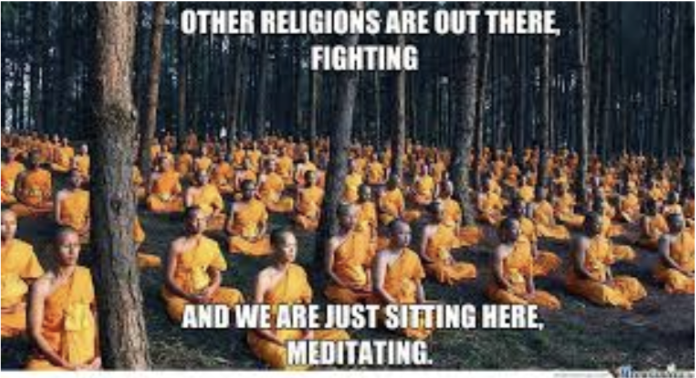The Buddhist philosopher Nagarjuna, who lived in India around the 2nd century CE, is best known for his profound insights into the concept of emptiness and the founding of the Madhyamaka school, which gave birth to Mahayana Buddhism and in later centuries, transformed into many flourishing buddhist schools. While his teachings continue to resonate across cultures and centuries, they have traveled from ancient India to China, Japan, and eventually to Deerfield, MA, shaping the foundation of the Green River Zen Centre. This center, as a part of the Zen Peacemaker Order, belongs to a long Japanese Soto Zen lineage rooted in Nagarjuna’s foundational thoughts.

In this podcast, we have focused on a dharma talk delivered by the founder of Green River Zen Centre, Roshi Eve, during the last retreat. We will explore how Nagarjuna’s philosophy offers a unique perspective on the nature of reality and the interconnectedness of all things, which later translated to Zen Buddhism as ‘oneness’. And eventually, how these philosophies can be applied in the context of the modern world, where issues of racism, classism, sexism and all other social injustice ‘ism’ persist.
Roshi powerfully stated that through emphasizing the absence of independent existence, Nargajuna encourages us to see beyond the superficial divisions that often fuel discrimination and prejudice. His teachings invite us to recognize the interdependence of phenomena and to transcend the boundaries of self and other. And be awakened from the proliferated individualised people and being, and start to realize the oneness that we all have deep in ourselves.
Green River Zen is both a standard Buddhist community and yet, it is also not. While it focuses primarily on meditation like many Buddhist communities in North America, it goes beyond just the ‘sitting’. As a part of the larger Zen Peacemaker Order, it was initially established to serve marginalized populations, including those living in poverty and those affected by AIDS. Therefore, Green River Zen thrives with a commitment that extends beyond meditation cushions.

A COMMON CONCEPTION ON ZOTO ZEN
This community is dedicated not only to the study of Buddhist philosophy but also to embodying its principles in our daily lives. They believe in making Buddhist teachings a lived culture, one that informs our actions and imbues every moment with mindfulness and compassion. They also recognize that true awakening is not confined to the meditation hall but extends into every interaction, every decision, and every aspect of our lives. By actively engaging with the world around us, They seek to address the suffering of all beings and contribute to positive change in our communities.That in itself, ‘betrays’ the stereotypical zen centre that only sits, becuase Green River Zen also acts.
“How do we bring our Zen into our life? But Zen is life. What is there to bring? And into what? The point is to see life as the practice field. Every aspect of our life has to become practice. What forms can we create in modern society that will be conducive to seeing the oneness of life? What are the forms that will make it easier to experience interconnectedness?”
———-Founder of Zen Peacemaker Order, Husband of Roshi Eve, Bernie Glassman.